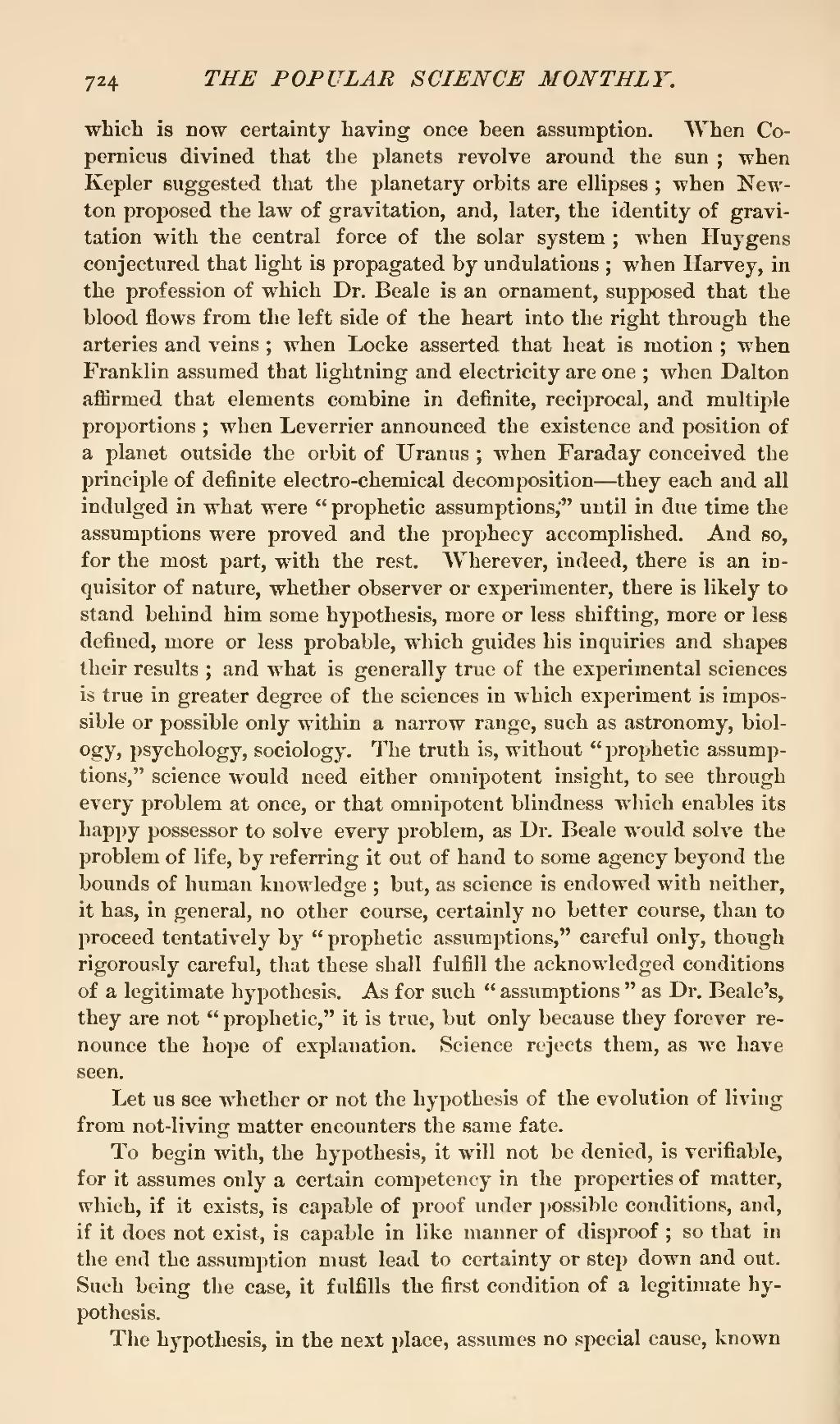which is now certainty having once been assumption. When Copernicus divined that the planets revolve around the sun; when Kepler suggested that the planetary orbits are ellipses; when Newton proposed the law of gravitation, and, later, the identity of gravitation with the central force of the solar system; when Huygens conjectured that light is propagated by undulations; when Harvey, in the profession of which Dr. Beale is an ornament, supposed that the blood flows from the left side of the heart into the right through the arteries and veins; when Locke asserted that heat is motion; when Franklin assumed that lightning and electricity are one; when Dalton affirmed that elements combine in definite, reciprocal, and multiple proportions; when Leverrier announced the existence and position of a planet outside the orbit of Uranus; when Faraday conceived the principle of definite electro-chemical decomposition—they each and all indulged in what were "prophetic assumptions," until in due time the assumptions were proved and the prophecy accomplished. And so, for the most part, with the rest. Wherever, indeed, there is an inquisitor of nature, whether observer or experimenter, there is likely to stand behind him some hypothesis, more or less shifting, more or less defined, more or less probable, which guides his inquiries and shapes their results; and what is generally true of the experimental sciences is true in greater degree of the sciences in which experiment is impossible or possible only within a narrow range, such as astronomy, biology, psychology, sociology. The truth is, without "prophetic assumptions," science would need either omnipotent insight, to see through every problem at once, or that omnipotent blindness which enables its happy possessor to solve every problem, as Dr. Beale would solve the problem of life, by referring it out of hand to some agency beyond the bounds of human knowledge; but, as science is endowed with neither, it has, in general, no other course, certainly no better course, than to proceed tentatively by "prophetic assumptions," careful only, though rigorously careful, that these shall fulfill the acknowledged conditions of a legitimate hypothesis. As for such "assumptions" as Dr. Beale's, they are not "prophetic," it is true, but only because they forever renounce the hope of explanation. Science rejects them, as we have seen.
Let us see whether or not the hypothesis of the evolution of living from not-living matter encounters the same fate.
To begin with, the hypothesis, it will not be denied, is verifiable, for it assumes only a certain competency in the properties of matter, which, if it exists, is capable of proof under possible conditions, and, if it does not exist, is capable in like manner of disproof; so that in the end the assumption must lead to certainty or step down and out. Such being the case, it fulfills the first condition of a legitimate hypothesis.
The hypothesis, in the next place, assumes no special cause, known
